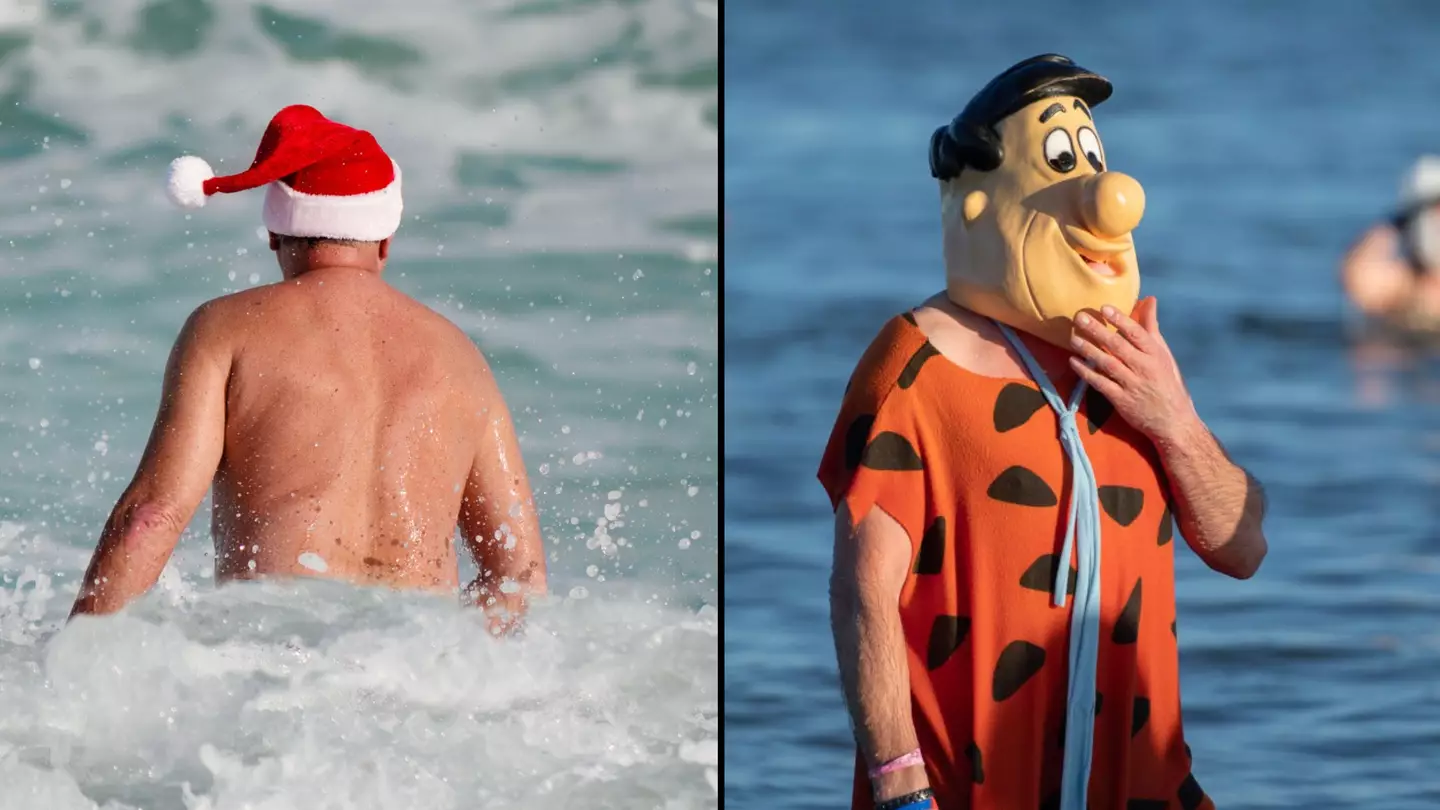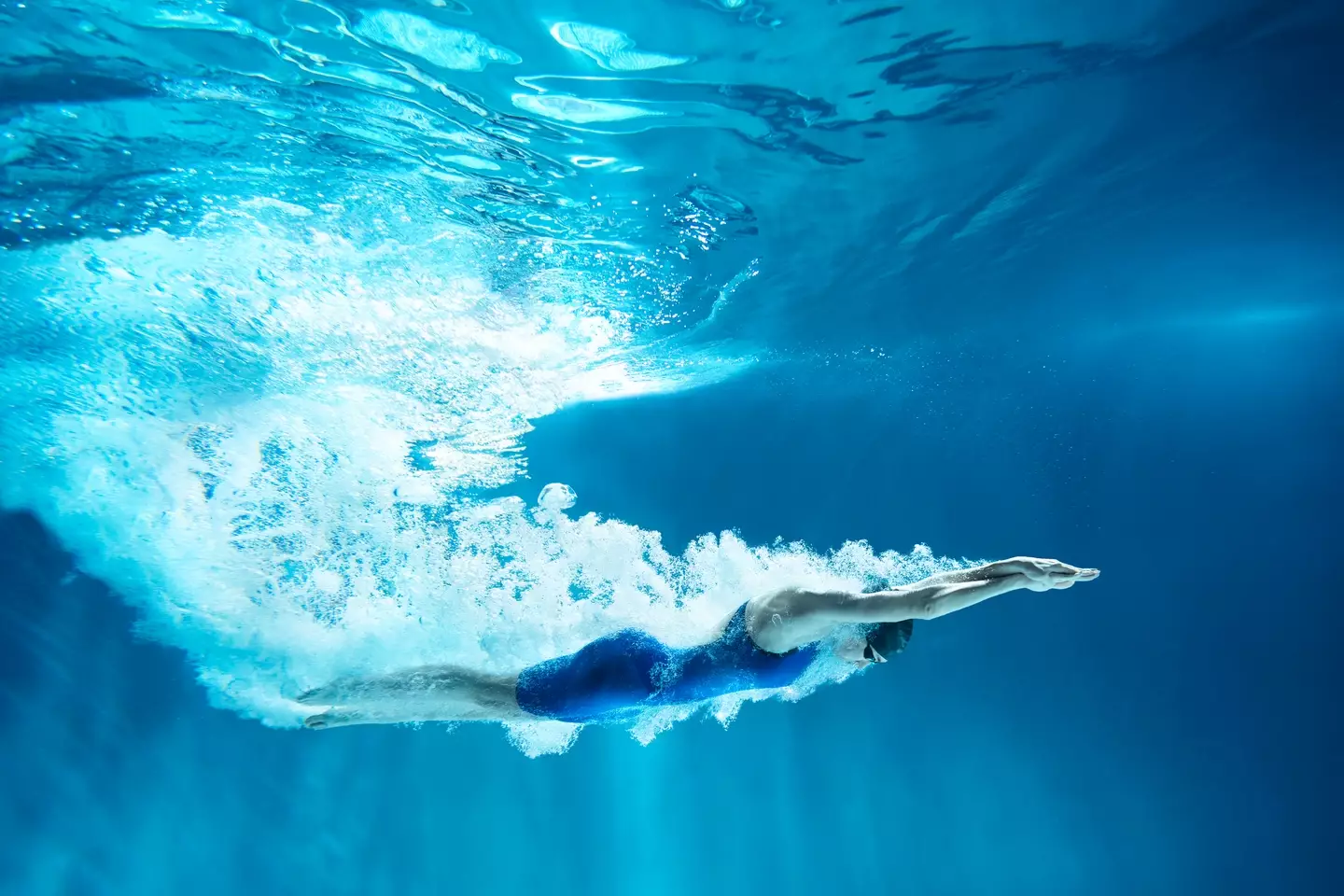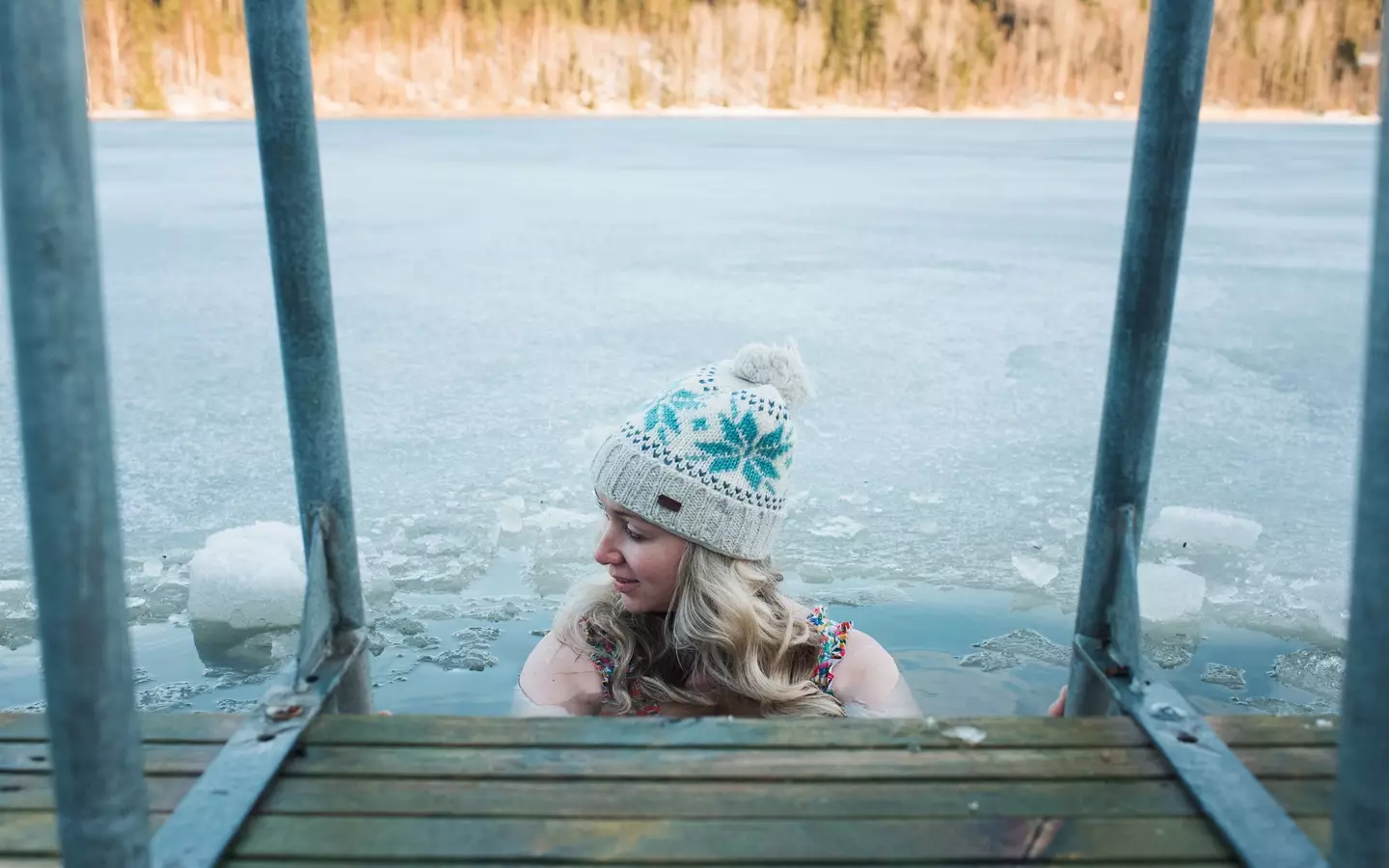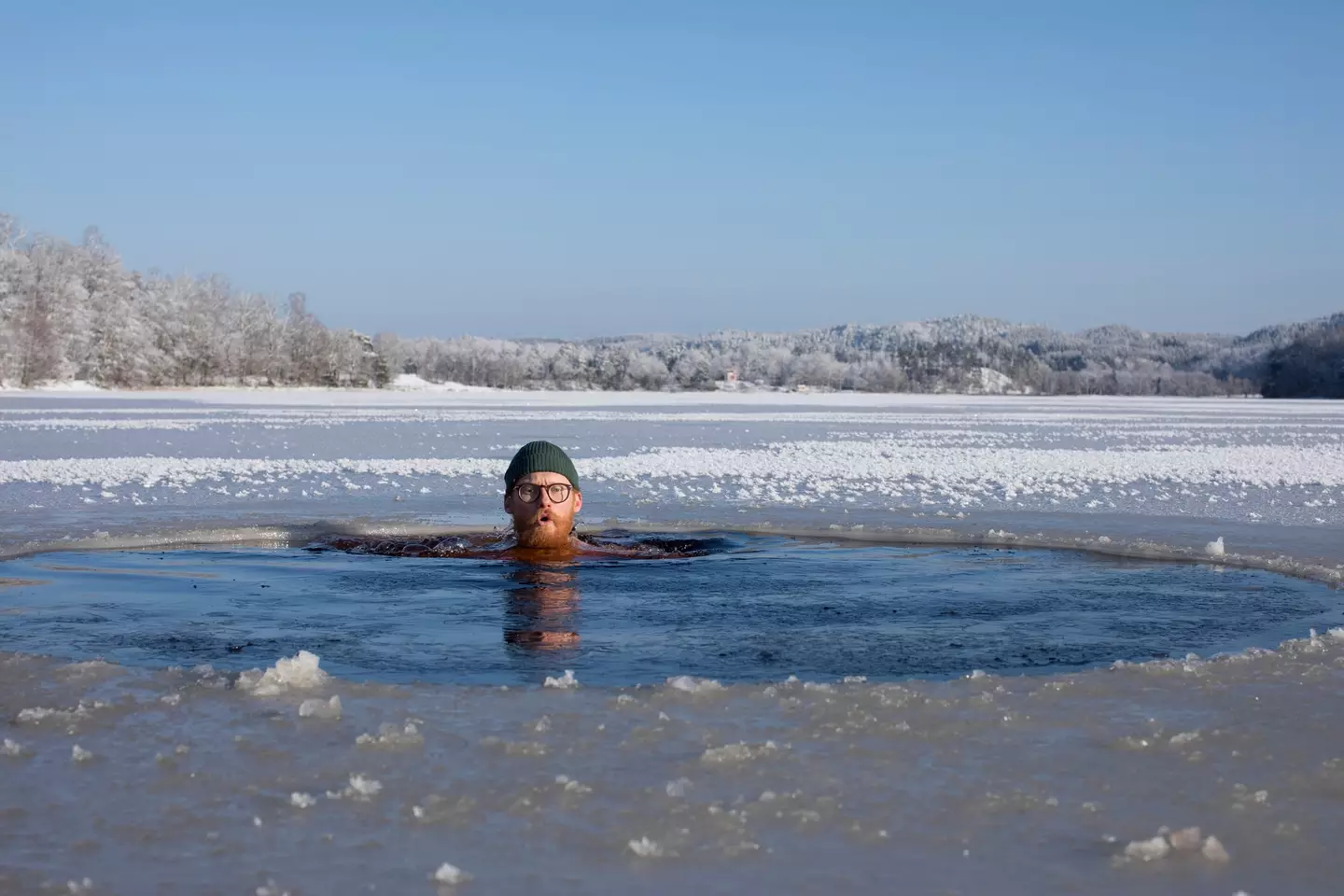
An expert has provided some advice for those looking to treat themselves to a cold water plunge on Boxing Day.
It has become something of a trend for people to take a dip into open water in fancy dress over the Christmas period, for whatever reason.
You can count me out, to be honest.
Now, a doctor has spoken about the health effects of dipping into icy cold waters, revealing whether it's really the best idea or not.
Advert
Not to state the blatantly obvious, but a fair share of risks come with diving into open water in this freezing (occasionally Arctic, let's be honest) weather.

GP Dr Nisa Aslam spoke to InYourArea about cold water swimming, noting that there are 'health benefits' which can help with the 'release of feel good brain chemicals', a positive for your mental health and cardiovascular system.
Diving into colder waters, known as 'winter swimming' or 'ice swimming', is for those who really enjoy it, though the health professional says that there is some preparation that people should take.
Recommending that people go in groups for safety, she added: “Don’t jump into cold water, rather wade in slowly up to your waist, dip your shoulders into the water then swim."
Advert
So, what exactly happens to our bodies if we go for a cool, winter dip? Let's go organ by organ for this extreme sport.

Lungs
There is a sensation when you jump into a cold pool and you feel like you can't breathe - this is called 'cold shock', and it happens to even the most experienced swimmers.
This is because your lungs contract, which could be followed by hyperventilation and loss of breathing control if you're not careful, Dr Aslam explains.
Advert
Though scary, all you need to do is focus on and control your breathing.
Heart
Dr Aslam explains: “Your heart rate, blood pressure and output of blood from the heart - cardiac output - increase rapidly."
It isn't anything to worry about if you're healthy, but if you haven't done something like this before, or have a full stomach or had some drinks prior, you may want to sit this one out.
Skin
The cold temperature can change your complexion ever so slightly, resulting in 'swimmers tan'.
Advert
GP Dr Rhianna McClymont gave her expert opinion, explaining: “Due to the increased heart rate and blood flow, your skin will get a healthy glow for a short time after you’ve finished.”

Brain
Swimming in cold water can result in your brain producing more endorphins, which helps us feel good and even relieve pain, as they kick in to fight against stressful feelings we may get.
Dr McClymont explains: “This kind of activity has also been shown to be beneficial for our mental health too. Regular cold water swimming can help us to cope better with different types of stress, as the body starts to learn how to regulate our stress hormones.”
Advert
She added that the 'increase in adrenaline' from being in colder water can 'create a feeling of euphoria', improving our overall mood.
Limbs
Dr Aslam, explains: “Blood vessels in the periphery – such as the skin, feet, toes, hands and fingers – constrict. It’s a response which is the result of the action of ‘cold receptors’ in the periphery peaking after 30 seconds, with adaptation taking a couple of minutes or so.”
So, what happens next?
After the first two minutes of exposure, you enter the second phase of short-term exposure.
Dr Aslam says: “During this phase, the muscle and nerve function is affected, particularly in the arms, head and neck.
“Biochemical activity in the body cells, muscles and nerves is interrupted. As the muscles cool further, there may be an increased sense of pain.”
There is a sweet spot which cold water fans look for, between immersion and the mind-numbing cold, which is said to feel freeing.
When you stop feeling cold, you should get out, walk around and rub yourself down, and have some warm clothes and a hot drink at the ready.
Topics: Health, Lifestyle, Christmas, Mental Health, Sport